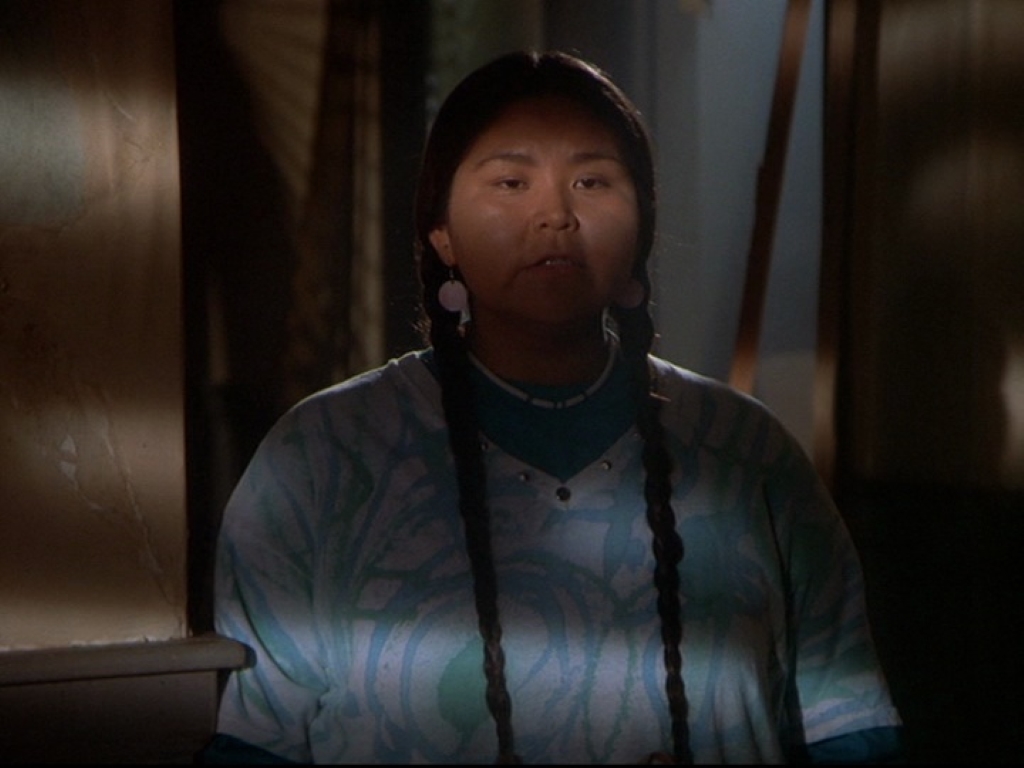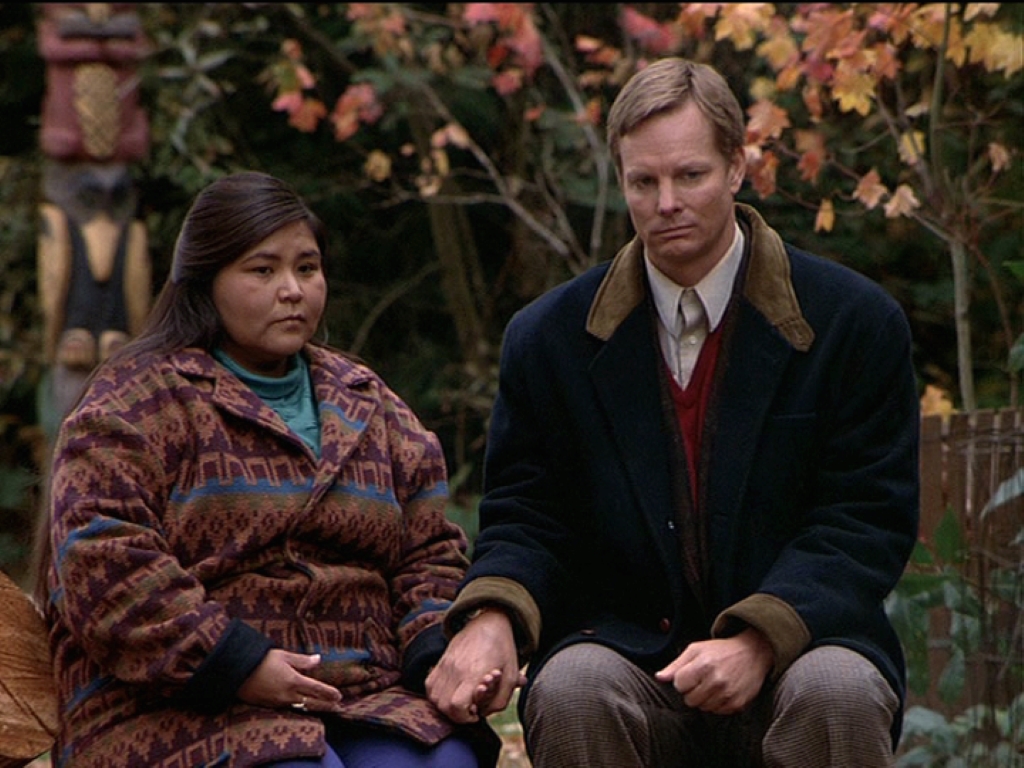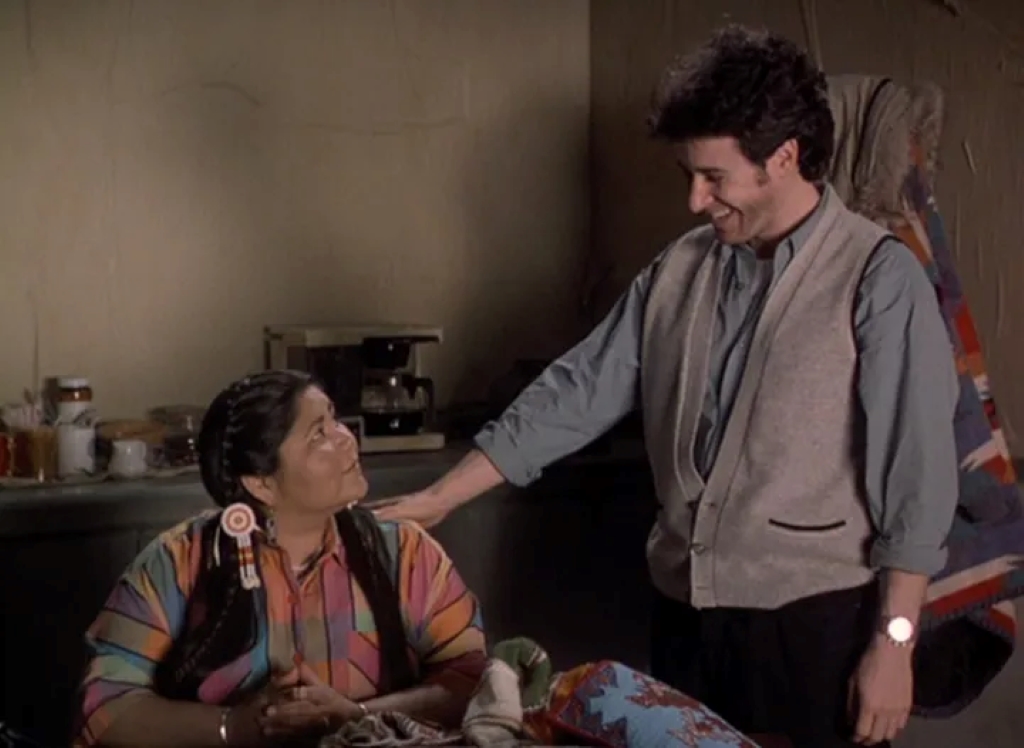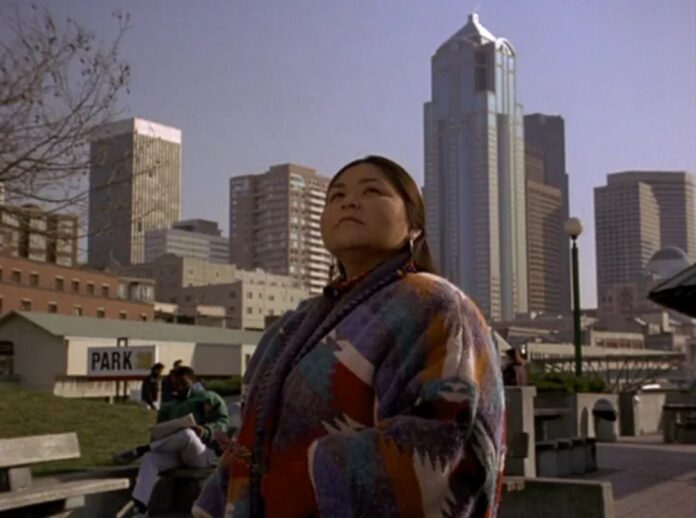When you think about Northern Exposure, the quirky small-town series set in the fictional town of Cicely, Alaska, you might not immediately think of Marilyn Whirlwind.
However, she deserves some recognition. Amidst a cast of wanderers who stumbled upon Cicely by chance, Marilyn was a local, an enduring fixture in the unique and eccentric community of Cicely, even outlasting Dr. Joel Fleischman, the show’s central character, who left early in the sixth season.
From her memorable introduction in the pilot episode, where she confidently claimed to be Joel’s secretary despite his protests, to her final appearance in the last episode as she closed her blinds, effectively bidding farewell to Cicely, Marilyn remained a constant presence.
What makes Marilyn even more remarkable is that she represented a largely overlooked minority group in America, both on and off the screen.
Marilyn, as well as the actress who portrayed her, Elaine Miles, are Native American. Marilyn’s character was deeply rooted in her cultural identity, adding a layer of authenticity and representation to the show.
While Northern Exposure featured three regular Native American characters, Marilyn was the only consistent female Native American presence.
This placed a significant responsibility on Elaine Miles, who unexpectedly became a public face for the Native American community when she initially auditioned for the series as a favor to her mother.
Before being cast in Northern Exposure, Elaine Miles had no ambitions of becoming a professional actress.
In fact, it was her mother, Armenia Miles, who had the desire to audition for the role of Marilyn.
Elaine agreed to drive her mother to the open casting call for Native American actors, and it was during this visit that she was noticed in the waiting room.
After some persuasion, Elaine decided to audition for the role herself, and to her surprise, she was offered the part.
As a delightful twist, Elaine’s mother also secured a role in the series, playing Marilyn’s mother.
Despite her lack of prior acting experience, Elaine Miles effortlessly and skillfully portrayed the whimsical and unique character of Marilyn right from the beginning.
As the series continued, she even infused Marilyn with some of her own personality traits, further enhancing the character’s depth and authenticity.

There were instances where the characterization of Marilyn faced some challenges.
Marilyn was known for her economy of words, but the words she did speak always carried deep meaning.
The series often relied on Marilyn to convey wisdom through storytelling, such as in the episode “A Bolt from the Blue” in the fifth season, where Marilyn shared a parable about a fortunate warrior to help Ed, a cinephile, navigate a philosophical crisis.
While this narrative technique served its purpose, it also reflected the show’s struggle to avoid stereotyping Marilyn.
In the early seasons, the characterization of Marilyn presented particular issues.
In a 1993 interview with Radiance magazine, Elaine Miles disclosed that she had initially been directed to over-enunciate her words and maintain a neutral expression.
These instructions, combined with Marilyn’s consistent hairstyle of two braids, left Miles feeling uncomfortable.
It took some time before she gathered the courage to address these concerns with the show’s producers.
However, when she did, she succeeded in bringing about real changes to Marilyn’s character.

As time passed, Marilyn’s hairstyle and mannerisms underwent changes.
While she never became the most talkative member of the ensemble, Elaine Miles was given the opportunity to make the character more expressive.
In later seasons, Marilyn’s character became more demonstrative, and she even had her own storylines.
For instance, in the third season episode “Get Real,” the character Marilyn, who was always quiet, encountered her ideal match in Enrico Bellati, the silent Flying Man, who arrived in Cicely with a traveling circus troupe.
Their flirtation required Marilyn to take on the role of both expressing her own feelings and acting as an interpreter for Enrico.
This storyline marked a significant step in the character’s evolution, distancing her further from the clichéd portrayal that she had in the early seasons.
Throughout the series, Marilyn’s most crucial role is to serve as a foil to her uptight boss, Joel.
Although Joel was undoubtedly the show’s protagonist, he wasn’t always the easiest character to like due to his neurotic tendencies and constant yearning for his old life in New York.
This is where Marilyn’s character plays a vital role. Her calm and composed demeanor balanced out Joel’s incessant chatter.
Whenever Marilyn and Joel shared scenes, her playful side emerged.
As noted in Heather E. Eps’s essay, “Going Native in Cicely, Alaska: American Archetypes and Hybridized Identity on Northern Exposure,” Marilyn often teased Joel in ways that he failed to pick up on himself.
For instance, she would insist that there was a call on line one, even though she knew there was only one phone line, thereby highlighting his fallibility and challenging his superiority complex.

More importantly, their relationship brought out Joel’s humanity.
Initially, he resisted the idea of having a secretary, but he eventually came to admire respect, and value Marilyn.
She evolved into one of Joel’s first friends and perhaps his strongest connection to Cicely. Their friendship took center stage in the season four episode “Learning Curve,” which saw Marilyn setting off for Seattle in search of adventure.
Joel became so anxious about the prospect of Marilyn being alone in the city that he agreed to extend his stay in Cicely, allowing him to leave the town for a while to follow her to Seattle.
He eventually finds her safe and sound because Marilyn is nothing if not resourceful.
However, the deeper purpose of the story was to reveal that Joel, the ostensibly hardened city boy who was merely biding his time in Cicely, had allowed himself to form a genuine attachment to a woman who, in many ways, embodied all the qualities that made Cicely such an appealing place to visit every week.
Northern Exposure certainly had more flamboyant characters than Marilyn Whirlwind, but none of them felt as deeply connected to Cicely as Marilyn did.
As a character, she was shaped by her heritage, and her heritage was rooted in the town. She wasn’t a visitor or a transplant; Cicely was an integral part of her.
She stood out against all odds—saying little yet leaving a lasting impression through her wise, welcoming, and relaxed demeanor.
Marilyn was a genuine product of a town and a series whose guiding philosophy was that everyone is welcome as long as they can slow down and appreciate the simple things in life.
You Might Like To Read: Rosa Peral Wikipedia: Burning Body Miniseries Explained


